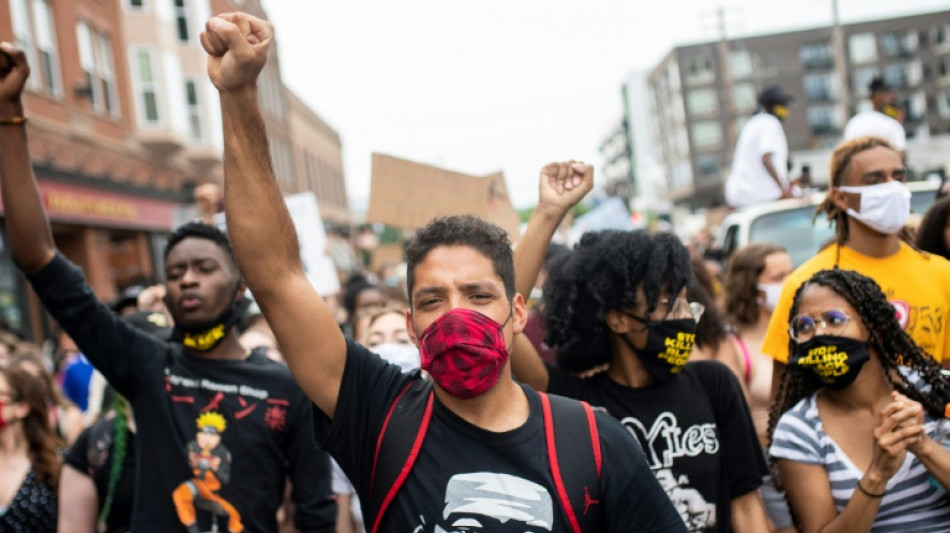
-
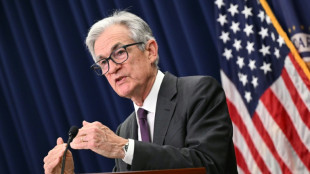 Asia stocks mixed after Wall St hits new highs
Asia stocks mixed after Wall St hits new highs
-
Cash-strapped Taliban look to airspace for windfall
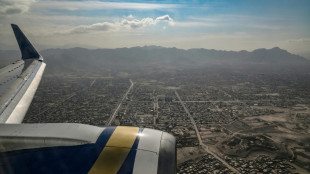
-
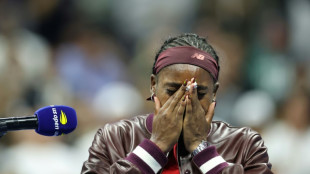 Biles' presence helps Gauff win US Open crying game
Biles' presence helps Gauff win US Open crying game
-
'Female power': Japan erotic art destigmatised in new exhibit

-
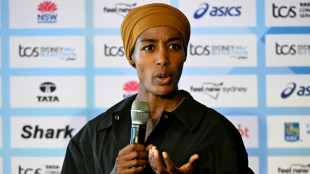 Olympic marathon champion Hassan opts for Sydney ahead of worlds
Olympic marathon champion Hassan opts for Sydney ahead of worlds
-
Atletico already playing catch-up after poor La Liga start

-
 Lyon find cause for optimism after turbulent summer
Lyon find cause for optimism after turbulent summer
-
Sinner on the march as tearful Gauff, Swiatek toil at US Open

-
 Julia Roberts to make Venice debut in cancel culture drama
Julia Roberts to make Venice debut in cancel culture drama
-
Big numbers set to remain a feature of Women's Rugby World Cup
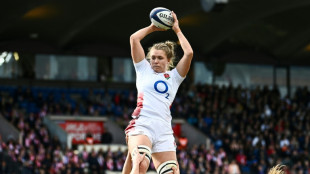
-
 Families lose hope for Salvadorans held in gang crackdown
Families lose hope for Salvadorans held in gang crackdown
-
Trump thumbs nose at decades of India courtship
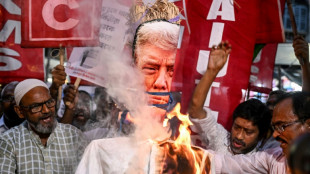
-
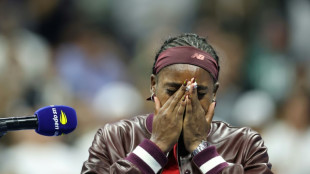 Gauff wins crying game to reach US Open third round
Gauff wins crying game to reach US Open third round
-
Arsenal seek statement win at Liverpool, Amorim faces Burnley must-win
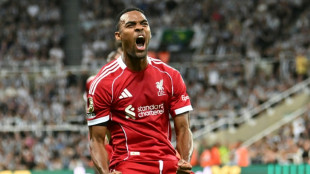
-
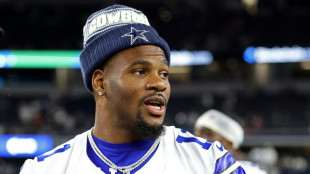 Cowboys trade Parsons to Packers in blockbuster NFL deal
Cowboys trade Parsons to Packers in blockbuster NFL deal
-
Russian attack killing 23 in Kyiv unleashes international fury

-
 Venezuela revives heroes with AI to spur reservists on US 'threat'
Venezuela revives heroes with AI to spur reservists on US 'threat'
-
Solskjaer sacked by Besiktas after European flop
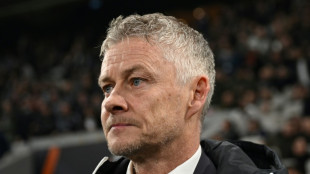
-
 Froome to undergo surgery after breaking back in training crash
Froome to undergo surgery after breaking back in training crash
-
Trump moves to end US tariff exemption for small packages
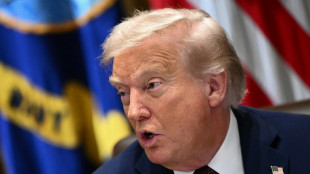
-
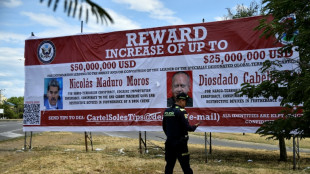 US targets Venezuela over 'Soles' cartel. Does it exist?
US targets Venezuela over 'Soles' cartel. Does it exist?
-
Coe hails 'overwhelming support' for gene testing ahead of Tokyo worlds
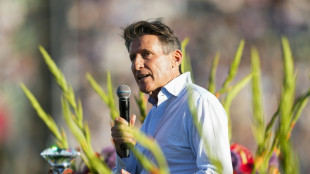
-
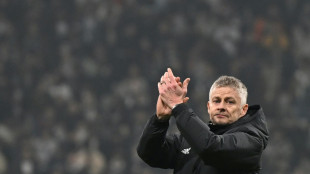 Solskjaer fired by Besiktas after Conference League failure, Palace squeeze through
Solskjaer fired by Besiktas after Conference League failure, Palace squeeze through
-
Osaka slams Ostapenko rant in US Open 'racism' storm
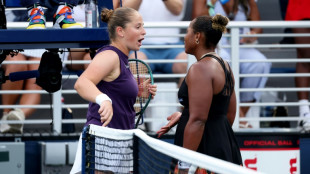
-
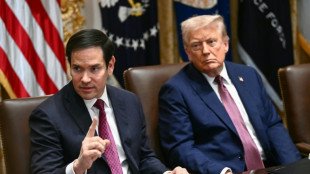 Rubio to visit Mexico, Ecuador next week to discuss migration, China
Rubio to visit Mexico, Ecuador next week to discuss migration, China
-
US church shooter 'obsessed with idea of killing children'
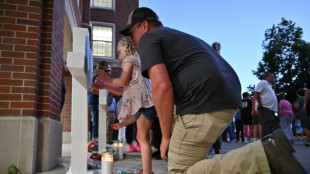
-
 US stocks reach new peaks as investors digest US GDP
US stocks reach new peaks as investors digest US GDP
-
US approves $825 mn missile sale to Ukraine

-
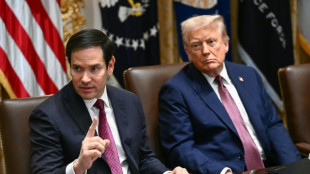 Rubio to visit Mexico, Ecuador next week to discuss migration, China: US
Rubio to visit Mexico, Ecuador next week to discuss migration, China: US
-
Lyles edges Tebogo in Zurich thriller in perfect Tokyo boost
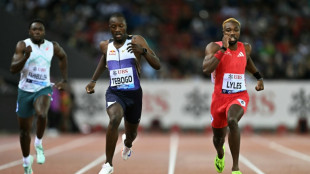
-
 Lyles trumps Tebogo in Zurich, Alfred shines
Lyles trumps Tebogo in Zurich, Alfred shines
-
Arsenal optimistic about Havertz return after knee surgery
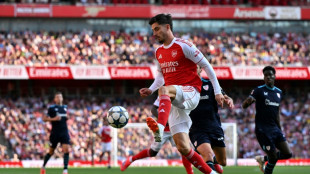
-
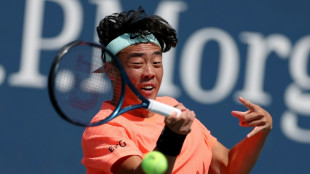 Pressure-free Wong relishing US Open adventure
Pressure-free Wong relishing US Open adventure
-
RFK Jr bashes US health agency after its chief is sacked
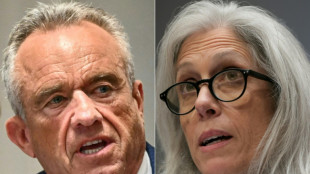
-
 Swiatek wobbles at US Open as Sinner targets third round
Swiatek wobbles at US Open as Sinner targets third round
-
Alfred storms to 100m victory at Diamond League finals

-
 Bison herds 'reawaken' Yellowstone's prairies
Bison herds 'reawaken' Yellowstone's prairies
-
RFK Jr bashes US health agency after firing its chief
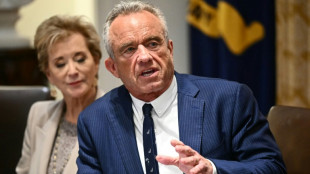
-
 Swiatek labours into US Open third round
Swiatek labours into US Open third round
-
UN sets 2027 exit for Lebanon peacekeepers after Israeli strikes

-
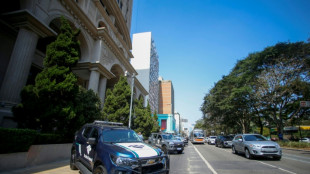 Brazil police target network that siphoned billions from fuel sector
Brazil police target network that siphoned billions from fuel sector
-
Liverpool and Man City face Real Madrid in Champions League, PSG get tough draw

-
 'Strangest' dinosaur covered in spiked armoury: scientists
'Strangest' dinosaur covered in spiked armoury: scientists
-
UN Security Council votes for Lebanon peacekeepers to leave in 2027

-
 Badminton federation smoothes feathers ruffled by shuttlecock shortage
Badminton federation smoothes feathers ruffled by shuttlecock shortage
-
Luxury carmaker Lotus to slash UK jobs amid US tariffs
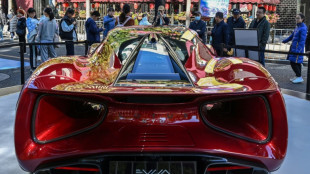
-
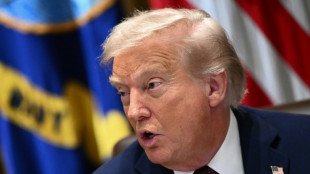 Small parcels in limbo as Trump moves to end US tariff exemption
Small parcels in limbo as Trump moves to end US tariff exemption
-
Russian attack killing 19 in Kyiv unleashes international fury

-
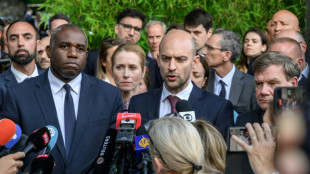 Europe powers move to reimpose Iran sanctions over nuclear drive
Europe powers move to reimpose Iran sanctions over nuclear drive
-
UN chief condemns 'endless' Gaza horrors as Israel presses offensive


Did George Floyd protesters miss their moment for change?
Outrage over George Floyd's killing by police catapulted Black Lives Matter into one of the largest protest movements in US history, with angry crowds chanting the slogan at rallies from Los Angeles to Washington.
But five years on, the protesters are gone and an iconic monument outside the White House has been erased, leaving many to wonder if the movement blew its chance for historic change by failing to win over the American public.
"It's very easy to wear the T-shirt, utter the slogan, but then you looked at what they were asking for," Yohuru Williams, who runs the Racial Justice Initiative at the University of St Thomas, told AFP.
Despite widespread revulsion at racism and police brutality in the wake of Floyd's May 2020 death, many turned away when BLM activists broadened their message to calling for the defunding of law enforcement.
National support for the Black Lives Matter movement is now 52 percent, according to Pew Research, down 15 percentage points since June 2020, a month after police officer Derek Chauvin killed Floyd during an arrest in Minneapolis.
Initially, Floyd's death was hailed as a catalyst for a national reckoning similar to the 1960s civil rights movement.
Protests, some turning into riots, spread across the country -- right up to the gates of the White House, where Donald Trump was serving his first term.
Pent-up energy from Covid lockdowns fed the anger, which coalesced around BLM, until then a loose organization founded in 2013 to protest racially motivated violence.
Activists soon widened their focus to systemic racism, with monuments of slave owners removed and some companies investing in diversity initiatives to support ethnic minorities.
- Missed opportunity -
Despite the ambition, Williams said that BLM has achieved "very little."
"The moral clarity of 2020 has not translated into enough political courage," Phillip Solomon, a professor of African-American Studies and Psychology at Yale University, told AFP.
The George Floyd Justice in Policing Act, which proposed law enforcement reforms, including nationwide bans on dangerous chokeholds during arrests, has failed to pass US lawmakers.
Solomon said Floyd's killing –- he called it a "lynching" -– opened an opportunity for change that was missed and is now facing a backlash.
The election of Trump to a second term -- despite his racially charged rhetoric and heavy support from far-right figures –- reflects deep-rooted tensions, he said.
"I think this moment is a microcosm of America," Solomon added.
Race inequality has long sparked protests in the United States, where segregation only legally ended in the 1960s after a relentless campaign of marches and civil disobedience.
Floyd's death came in the context of dozens of other high-profile instances of police brutality against Black people –- something that smartphones and social media can now rapidly document and share.
- 'Reversed with a vengeance' -
There have been police reforms in some states primarily focused on limiting the amount of force officers can use, as well as local programs to send unarmed responders instead of police to selected callouts.
However, many say these measures are insufficient.
Medaria Arradondo -– serving as the first Black police chief of Minneapolis when Floyd died -– told AFP he was worried about the "grave consequences" of failing to enact more reforms.
"I hope and pray that we as a nation are not sleepwalking our way into the next critical crisis," he said.
Civil rights group the National Urban League this month published a report warning that marginalized communities have been "pushed deeper into survival mode" after Floyd's death.
League president Marc Morial said at a conference that steps to address racial injustices have "been reversed with a vengeance."
Trump's Justice Department has axed all outstanding civil rights investigations from the outgoing Joe Biden administration, ended police accountability agreements, and cracked down on diversity hiring.
Some of Trump's more extreme supporters have gone as far as calling for Chauvin to be pardoned.
But Arradondo said he remains optimistic.
"History has shown we make incremental change,” he said, “We're going to have a lot of hard work ahead of us, but I believe we will get there."
T.Ibrahim--SF-PST
